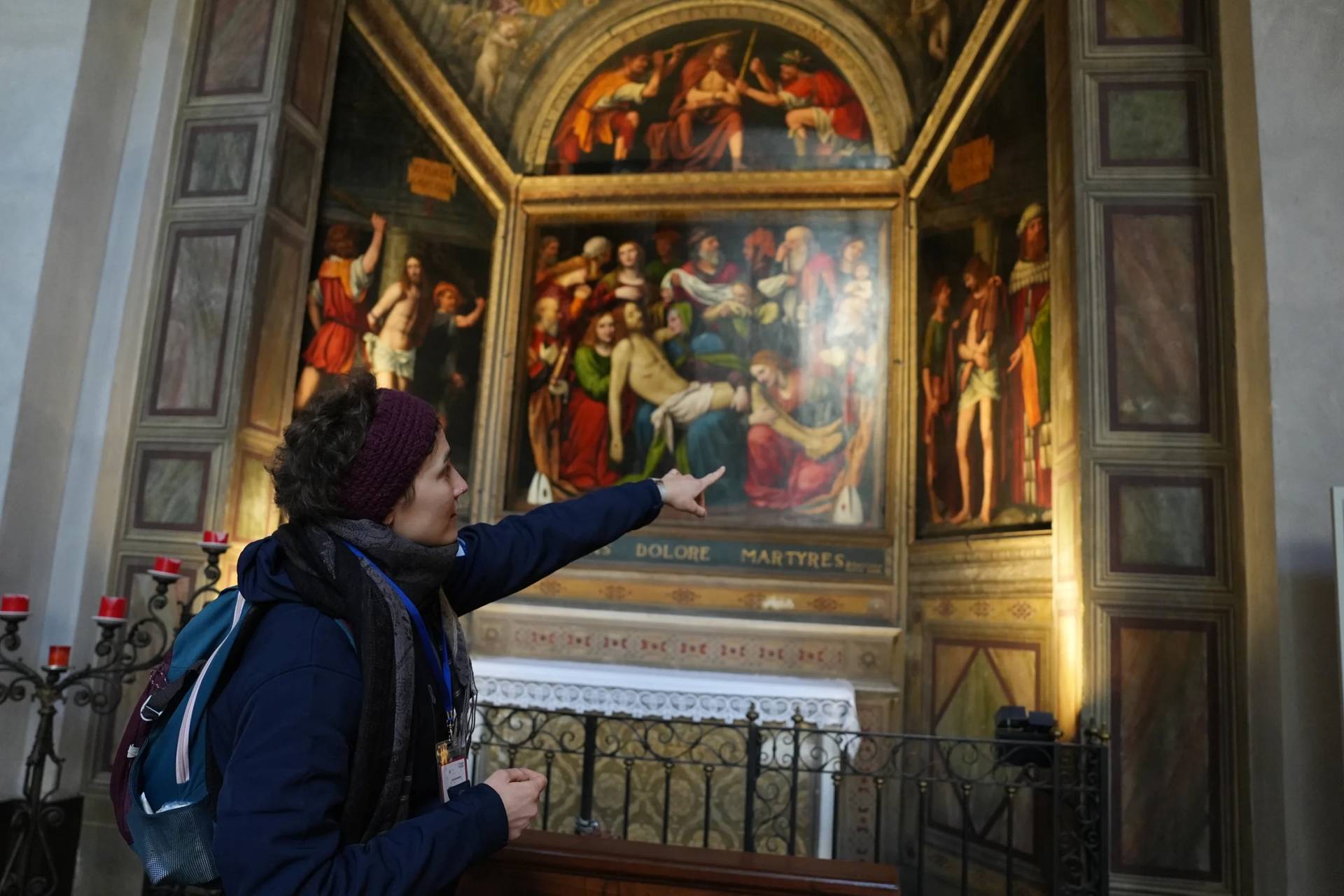ROME – Bishop Dominique Rey of Fréjus-Toulon in southeastern France recently held a meeting with his clergy to discuss changes that are being made following a Vatican inquiry, resulting in the postponement of the diocese’s priestly ordinations earlier this year.
In a statement published on the Diocese of Fréjus-Toulon’s website, it was announced that on Sept. 15, Rey held a listening session in the La Castille seminary with around 150 priests from the diocese to discuss the events that have unfolded over the past few months.
The aim of the meeting, according to the statement, was to address the “climate of uncertainty” in the diocese and to allow priests to voice their questions and concerns.
An apostolic visitation into the Diocese of Toulon concluded earlier this year, resulting in the postponement of the diocese’s priestly ordinations, originally scheduled for the June 29 feast of Saints Peter and Paul.
In their statement, the diocese said: “Since the suspension of ordinations in June, no new information has come from Rome and the diocese still does not know when priests and deacons can be ordained again.”
Diocesan visitations are rarely announced publicly, and the visitation into Toulon was not revealed until this summer when the diocese announced the postponement of this year’s priestly ordinations, which were delayed indefinitely as a result of the visitation.
In a seemingly unprecedented move, the Vatican asked Toulon to halt its ordinations while providing no reason for the decision, which the diocese said was made following a ‘fraternal’ visitation to seek solutions to pastoral issues, such as the diocese’s broad ‘reception policy’ of priests and movements into one seminary.
Widely considered to be among the most flourishing dioceses in France, which annually yields numerous vocations, Toulon is known for its welcome of new movements and priests from other areas, including those attached to the Traditional Latin Mass, which was restricted by Pope Francis last year.
Rey has been supportive of the so-called “Old Rite,” and was critical of the pope’s decision to restrict access to it.
According to the diocesan statement, in the listening session with clergy, Rey told priests about several changes that have been made as a result of the Vatican’s inquiry, and which have already been communicated to the Vatican’s Dicastery for Bishops.
These changes, the diocese said, include “an inventory of the communities present in the Diocese with visitors who can have different perspectives” either from a canonical, pastoral, or spiritual point of view.
The reception of new communities into the diocese has also been suspended, and Pope Francis’s legal instruction Traditionis Custodes restricting the Traditional Latin Mass has been enforced, “with a systematic visit to the groups concerned under the responsibility of the appointed referent.”
Going forward, new priests will also first be vetted by the Presbyteral Council, which will rule either in favor or against their admittance into the diocese.
Rey, speaking to his clergy, admitted to having made “errors of appreciation and discernment in the reception and follow-up of certain communities,” but he said he also informed the Vatican of “the missionary fruits and the fruitfulness of the various charisms and pastoral initiatives of the diocese.”
“I took into account the remarks, the errors made, without calling into question the work of missionary communion to be built together,” he said, according to the statement.
Father Michaël Nachez, member of the College of Consultors and vice-president of the office at the Presbyteral Council, also made remarks, telling priests that “it is important to keep communion as a guideline.”
“This crisis invites us to reform ourselves, to opt for more transparency for the good of all,” he said, and urged priests to contact the Presbyteral Council should questions or issues arise.
Priests were then invited to take the floor to voice questions or concerns in what was described as “an exchange in complete frankness.”
According to the statement, some clergy voiced feelings of “demotivation” and “discouragement,” but many also stressed the importance of unity and expressed their support for Rey and their willingness to grow as part of the current process.
Many priests also thanked Rey for his leadership and stated their belief that the current crisis is an opportunity “to be lucid about the difficulties and the will to remedy them.”
After listening to the priests, Rey, the statement said, decided “to increase his presence in the field” by doing more parish visits in a bid to “better support and accompany priests in their priesthood.”
Follow Elise Ann Allen on Twitter: @eliseannallen












